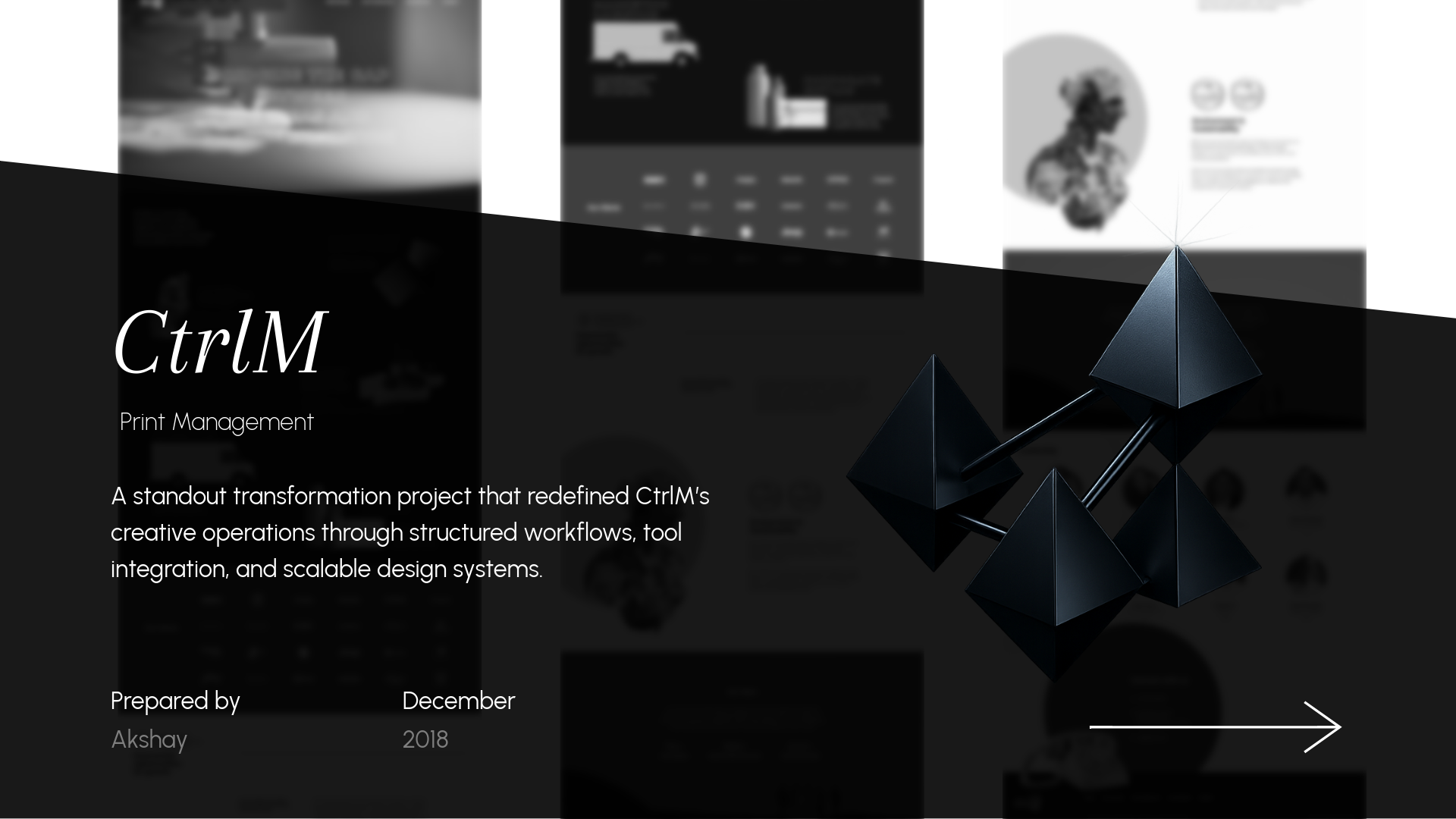 RESEARCH
RESEARCH
Research enabled CtrlM to diagnose operational pain points within its design lifecycle. By mapping creative workflows, identifying delays, and benchmarking industry best practices, the team could develop structured systems tailored to high-volume brand execution. This data-driven insight formed the backbone of all subsequent design and process interventions.
 DESIGN
DESIGN
CtrlM’s new design methodology prioritized consistency, usability, and brand fidelity. Standard operating procedures (SOPs), visual guidelines, and centralized creative templates ensured that all assets aligned with brand expectations — reducing rework and ensuring output consistency across campaigns and touchpoints. Design became a structured, scalable function rather than an ad-hoc service.
 DEVELOPMENT
DEVELOPMENT
Building Operational Infrastructure for Design Execution Development efforts focused on implementing tools and workflows that could support large-scale creative production without compromising efficiency.
Project management software was introduced to streamline task tracking, approvals, and delivery. Team training and collaborative tool onboarding ensured consistent adherence to SOPs. These infrastructure improvements accelerated turnaround times, reduced creative bottlenecks, and established a high-performance creative delivery engine.
The result was a design delivery system optimized not only for technical precision but for business impact — enhancing client confidence, reducing operational friction, and unlocking growth through repeat engagements.
 📌 Company Snapshot
📌 Company Snapshot
CtrlM Print Management India Pvt. Ltd. | Print & Design Execution | India
 ⚠️ The Problem
⚠️ The Problem
How do you scale a design team without losing consistency, speed, or sanity?
 🔍 The Turning Point
🔍 The Turning Point
This was where the foundation for future workflow thinking was laid.
 🛠 Intervention
🛠 Intervention
During my time at CtrlM, I had the opportunity to lead a transformation within the design team’s day-to-day execution.
 📈 The Ripple Effect
📈 The Ripple Effect
The result was a design function that could scale without slipping
 🪞 Reflections
🪞 Reflections

